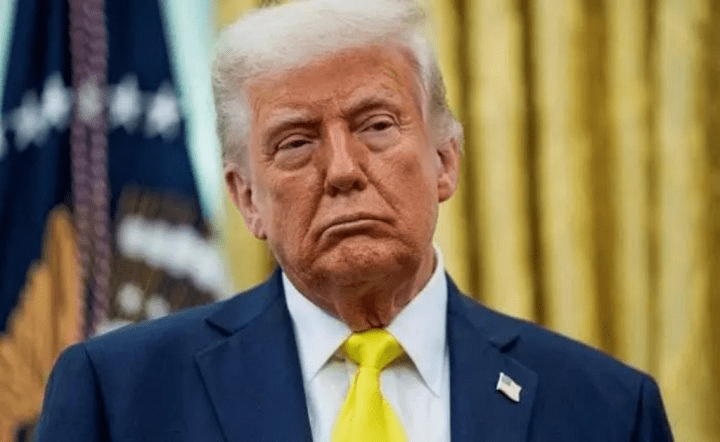Brothers, today we must bring this gossip out for the crypto community to analyze — Former President Trump was actually denied by two major banks in the U.S.!
Bank refusal to accept deposits? It’s not that simple.
According to Trump himself, JPMorgan gave him an ultimatum: transfer hundreds of millions in cash within 20 days; turning to Bank of America wanting to deposit $1 billion, he was directly shot down by CEO Moynihan with a 'we can't do it', and in the end, he could only break it down into a bunch of $10 million to stuff into small banks.
It’s obvious to anyone with eyes that this is not just an ordinary 'refusal of service'. A former president who can mobilize vast commercial resources is collectively 'blacklisted' by systematic financial institutions, there must be something behind it. Trump himself claims, 'Regulatory agencies were instructed to target him', but we in the crypto space need to penetrate the surface to see the essence — his recent actions in the cryptocurrency field have already turned the traditional banking cake upside down!
The key to offending 'old money': the move of decentralized stablecoins.
Here's the key point! Trump is determined to support decentralized stablecoins, having signed a series of related bills that directly target the core business of traditional banking. The cross-border payments and low-cost settlements of stablecoins are precisely the 'comfort zone' where banks make money effortlessly, and now that is being cracked open by decentralized technology, how can the old money not be anxious?
Thinking deeper, this is actually a direct clash between new and old financial forces:
Traditional banks rely on license monopolies and information asymmetry to make money, most afraid of 'disintermediation'.
Decentralized stablecoins directly return settlement power to users, equivalent to hitting banks where it hurts.
Trump's recent actions put him in opposition to the traditional forces of Wall Street.
Three key signals for the crypto world.
The value of decentralization has been strongly validated.
The fact that major banks can arbitrarily refuse a $1 billion deposit shows just how terrifying the power of centralized finance is — whether your money is deposited or how it's deposited all depends on the institution's whims. And this is precisely the core issue that cryptocurrency aims to solve:Asset autonomy is always in one's own hands..Regulatory games may escalate, but the trend cannot be stopped.
The regulatory forces behind banks will certainly retaliate, that is inevitable. But the fact that Trump is still pushing hard even after being 'censored' shows that even the traditional political sphere realizes: decentralized finance has become an indispensable variable, and there will only be more intense games in the future; it won't disappear without a trace.The decentralized stablecoin sector deserves more attention.
The fact that banks are anxious enough to 'censor' a former president proves the lethality of this sector. For us crypto players, this is a signal: focus on those decentralized stablecoin projects that have real landing scenarios and clear compliance paths; in the long run, this is betting on the future forms of finance.
Finally, let me say a blunt truth.
Trump being denied this deposit is less about personal grudges and more a warning from the traditional financial system to 'challengers'. But history has always been about new forces advancing over old rules; the more banks fear, the more it indicates the vast opportunities hidden in the crypto space we are currently delving into.
Remember, when centralized institutions begin to use their power to 'refuse service', it is time for decentralized technology to accelerate. This gossip is worth our attention!
#加密市场回调 #Strategy增持比特币 #BNB创新高



